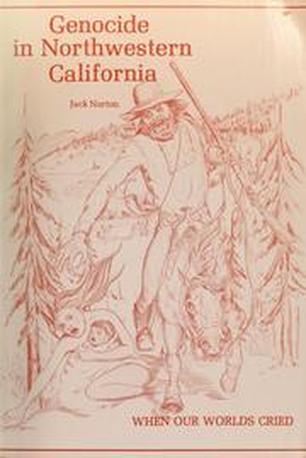 I've decided to post pics of books that this Professor could read to actually learn about the Genocide against Native peoples in California. I've decided to post pics of books that this Professor could read to actually learn about the Genocide against Native peoples in California. Late last week this happened. A young woman by the name of Chiitaanibah Johnsen (Navajo/Maidu) told Indian Country Today about her experience in a history class at Sacramento State University where she disagreed with the Professor’s claim that Native Americans did not face genocide. She said that because she was trying to engage with him during class, he ended the class early, called her disruptive, and said that she was “hijacking” the class. She also said that her professor told her she would be disenrolled and expelled from the classroom. You should read the entire article here if you haven’t. Now, some people may be surprised to learn that when I talk about genocide in my classes (and I do, I often teach about California, and it becomes very clear, very quickly that what happened in California is a genocide) that students resist. There are many things that I tell them which they take at face value. If we are talking about basketry, they don’t question the methods or the outcomes of what I am saying about basketry. If we are talking about sacred sites, they nod along to videos I show them of Native people fighting for the right to protect their sacred places. But when we start talking about genocide, it usually results in few people who really, really, want there to have not been a genocide in the United States. That’s why this story hit so close to home for me. I mean, this dude is teaching in CALIFORNIA. CALIFORNIA. Genocide in California? Yeah, Native scholars have been writing about that for a while now… Part of the problem is that many are surprised to hear there was a genocide, or even mass killings, or any horrific example of something that happened. When you start talking about sport killing, the hunting of Indians, the large sums of money that were paid for California Indian heads and scalps, the open, flagrant, killing of Indian children, -- well nobody’s ever heard about it before. The erasure of the genocide feels almost surreal, like nobody (especially our school system) could pull it off. If it was a thing that happened, we would learn about it, because you can’t hide something like that, right? Bringing people into a discussion about how thoroughly we have “hidden” the genocide that shaped this “great nation” of ours is, yes, usually met with some skepticism. And what I noticed about this Professor’s response to some of Ms. Johnsen’s research is that these responses are ingrained, because we learn them even if nobody takes us aside and says “this is how you refute or question or muddy genocide against Native peoples.” How we understand history is ingrained, it’s something that we have repeated… from kindergarten all the way through our required western history classes in college. We learn that history is benign, that history is the study of the past from an objective point of view that just wants to tell a story. We learn that history is in the past, and that our present and future depend on learning this story because we can learn a lot from it. But in reality, history is about power. The ability to tell the story is a very powerful thing. And the history we have learned in the west, is about justifying, maintaining and supporting the illusion that western civilization, western control of, western ownership of this land was inevitable, beneficial, and destined (manifestly). From a different perspective, history is not so benign. In fact, it is a constant presence meant to deny Native people’s very existence. Because if Native people exist, then all that history comes in to question. Who we will be, it’s not so set. And we are a country, not so settled. I found this quote from Joy Harjo yesterday while I was preparing for class and it stuck with me because I know that to raise your hand, to say something, to speak as a Native person is a very powerful moment. Especially when someone will try to shut you down. In this case a Professor had an opportunity to maybe learn something, or at least bring this young woman into a discourse about the messiness of history. But most don’t want their history to be messy. They want their history to be in the past, and for them easily controlled. But for Native people our history is our present is our future. Actually, that’s for all people, but Native people are clear examples of how this is true. Genocide (which happened) doesn’t just go away. Genocide… well Native people in California we didn’t just call it genocide… many of us called it “the end of the world.” An apocalypse, that doesn’t go away. That changes the world for everyone. Or as Joy Harjo said: “We are still dealing with a holocaust of outrageous proportion in these lands. Not very long ago, native peoples were 100 percent of the population of this hemisphere. In the United States we are now one-half of one percent, and growing. All of the ills of colonization have visited us in its many forms of hatred, including self-doubt, poverty, alcoholism, depression, and violence against women, among others. We are coming out of one or two centuries of war, a war that hasn’t ended. …But to speak, at whatever the cost, is to become empowered rather than victimized by destruction.” Anyway… here is my list of the top three things people tell me that try to explain why it's not genocide against Native Americans (even though it is. It's genocide.) Most Native Americans died of disease. |
SubscribeClick to
AuthorCutcha Risling Baldy is an Associate Professor and Department Chair of Native American Studies at Humboldt State University. She received her PhD in Native American Studies from the University of California, Davis. She is also a writer, mother, volunteer Executive Director for the Native Women's Collective and is currently re-watching My Name is Earl... (5) Top PostsOn telling Native people to just "get over it" or why I teach about the Walking Dead in my Native Studies classes... *Spoiler Alert!*
Hokay -- In which I lead a presentation on what happens when you Google "Native American Women" and critically analyze the images or "Hupas be like dang where'd you get that dentalium cape girl? Showing off all your money! PS: Suck it Victorias Secret"
In which we establish that there was a genocide against Native Americans, yes there was, it was genocide, yes or this is why I teach Native Studies part 3 million
5 Reasons I Wear "Indian" Jewelry or Hupas...we been bling-blingin' since Year 1
Pope Francis decides to make Father Junipero Serra a saint or In Which I Tell Pope Francis he needs to take a Native Studies class like stat
I need to read more Native blogs!A few that I read...
Archives
June 2020
Categories
All
|
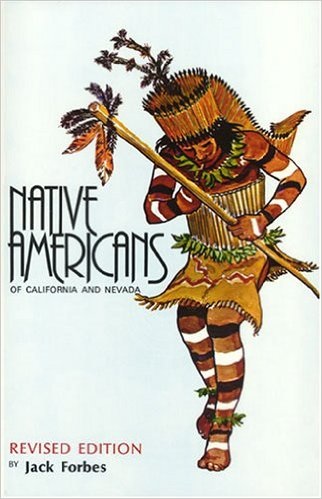
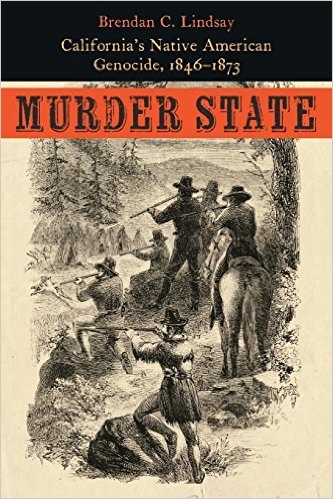
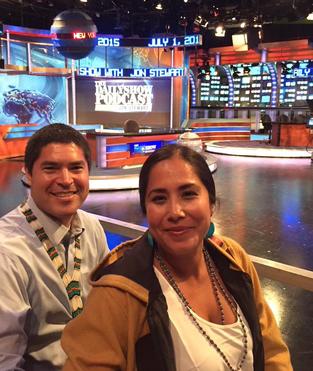
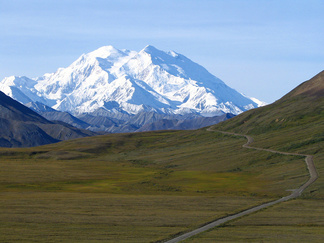

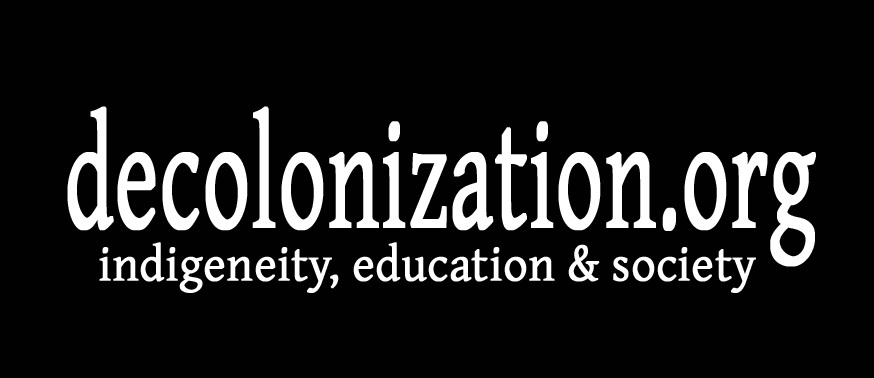


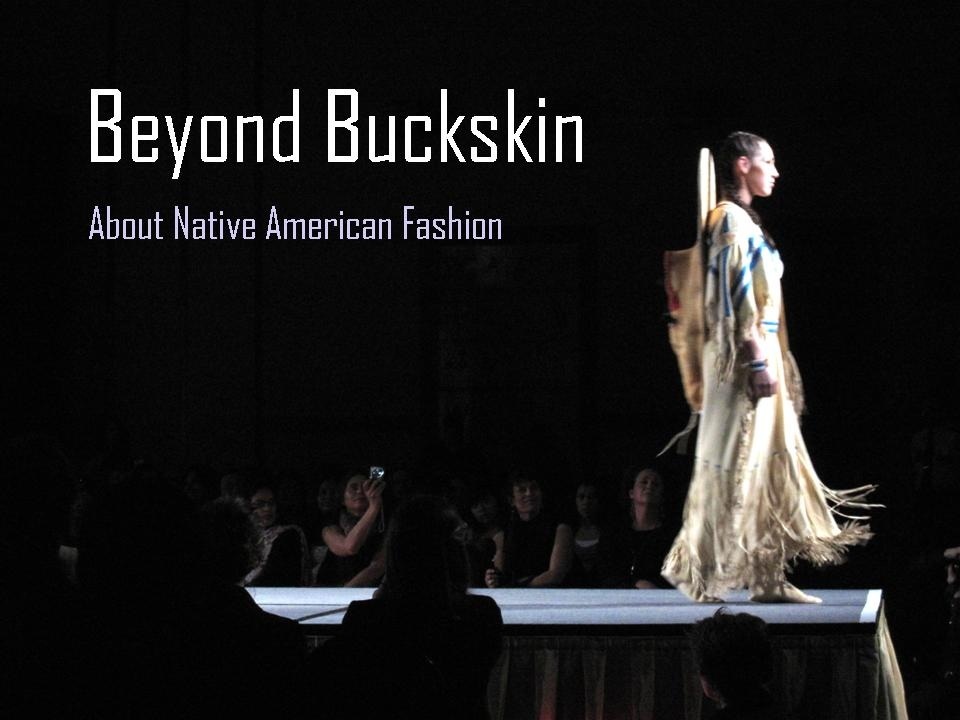

 RSS Feed
RSS Feed
